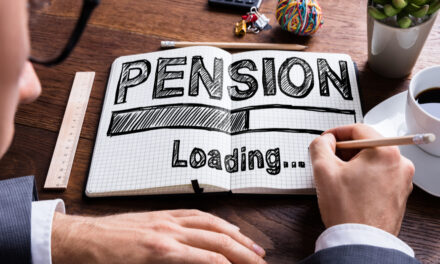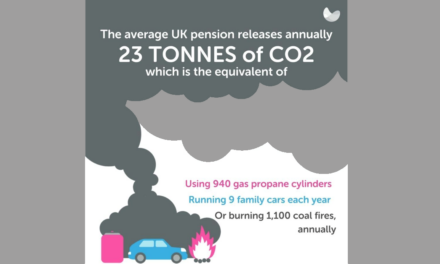Chancellor Jeremy Hunt has confirmed that the State Pension for 2023/24 will rise in line with September’s CPI inflation rate of 10.1%, as he restores the UK’s State Pension triple lock.
But what is the Government’s triple lock pledge, and what does it mean for State Pensions?
In November, Chancellor Jeremy Hunt put an end to speculation and confirmed that the Government would honor its triple lock pledge for State Pensions for the 2023/24 tax year.
The triple lock mechanism guarantees the State Pension will increase each year in line with the highest of Consumer Price Inflation(CPI), wage growth, or 2.5%.
The CPI figure the pension increases by each April should inflation be the highest figure is taken from the previous September figure from the Office for National Statistics.
Had the Chancellor chosen to suspend the triple lock by another year, the State Pension would have increased by around 5% in line with wages.
The Conservative Party had committed to maintaining the State Pension triple lock in its 2019 manifesto, but with the Government under pressure to fill the black hole in the nation’s finances many speculated that Chancellor Jeremy Hunt would choose to suspend the promise for another year.
The State Pension triple lock was initially suspended during the Coronavirus pandemic in September 2021, following concern from the Government that a big post-pandemic rise in average earnings would lead to an unaffordable annual increase.
Instead, the rise in the State Pension from April 2022 was the consumer inflation rate of 3.1%.
At the time the Work and Pensions Secretary promised the triple lock would return the following year, however, sky high inflation rates and a fiscal black-hole in the Treasury put the rise in doubt.
At the time the Government faced a revolt from the House of Lords, who attempted to stop the change in legislation necessary to suspend the triple lock by sending the Bill back to the House of Commons with amendments. However, MPs voted against the amendment, putting an end to the House of Lords’ proposed changes.
The restoration of the triple lock for the 2023/24 tax year means that the State Pension will now increase by September’s 10.1% rate of CPI from April.
It is currently set at £181.15 per week for the full State Pension, but will increase to £203.85.
The basic State Pension will increase to £156.20 a week from its current level of £141.85.
It is estimated that every 1% increase in the State Pension costs the Government around £0.9bn per year, meaning this rise will cost the Government over £9bn.
Steven Cameron, pensions director at Aegon, said the Government may not recommit to the triple lock pledge in any future elections, despite its popularity with pensioner voters.
He said: “Honouring this Manifesto commitment after ditching it last time round will provide much needed support for pensioners, many of whom are on low and fixed incomes and particularly vulnerable to rampant inflation. The government will no doubt have weighed up the reaction of pensioner voters if they scrapped the Triple Lock for a second consecutive year in the run-up to the next general election.
“But there’s a huge question mark over whether any party would recommit, in a future Election Manifesto, to paying the highest of price inflation, earnings growth or 2.5% year on year. In volatile times, using an average over 3 years or even paying out the average of inflation and earnings increases each year might be more sustainable for Government and predictable for pensioners.
“The outcome of the review of State Pension age is also to be published early in 2023 and on affordability grounds, this needs to be considered alongside the future of the triple lock.”
According to calculations by wealth manager Quilter based on Bank of England predictions, the State Pension will reach £220 by the 2024/25 tax year.
In November the Bank of England predicted that inflation is set to be around 7.9% in the third quarter of 2023, therefore if the triple lock continues to be honored the new full State Pension for the 2024/25 tax year would climb to £219.90.
The Basic State Pension would be £168.55 in April 2024.
Jon Greer, head of retirement policy at Quilter, suggested that the current State Pension triple lock may not be suitable longer term.
He said: “Perhaps it may be time to assess whether there is a fairer way to raise the State Pension while preventing more people slipping into the poverty net and having to choose between heating or eating.”
One alternative that has been mooted by some industry commentators is choosing an earning-lined increase to replace the triple lock.
The Work and Pensions Committee pledged to look for a replacement for the triple lock after 2020 before the last general election, with the committee recommending to the Government that it should replace the current system with one centered around an earnings link. In 2017 the Committee said the triple lock has been valuable, but it is unsustainable.
However, this promise was squashed following the Conservative Party winning the 2019 election with a pledge to retain the triple lock as part of its election campaign.
Choosing an earnings-linked approach could save the Treasury around £4bn to £5bn a year, according to Hargreaves Lansdown.
However, changing the method of calculation for the State Pension increase could prove unpopular.
Over two thirds (68%) of UK adults support the State Pension rising in line with inflation, according to a poll by platform AJ Bell.
Close to nine in ten (86%) of the 4,000 adults surveyed said they felt the State Pension should increase for 2023/24, but only 18% supported raising State Pension income in line with wage growth instead of inflation.







